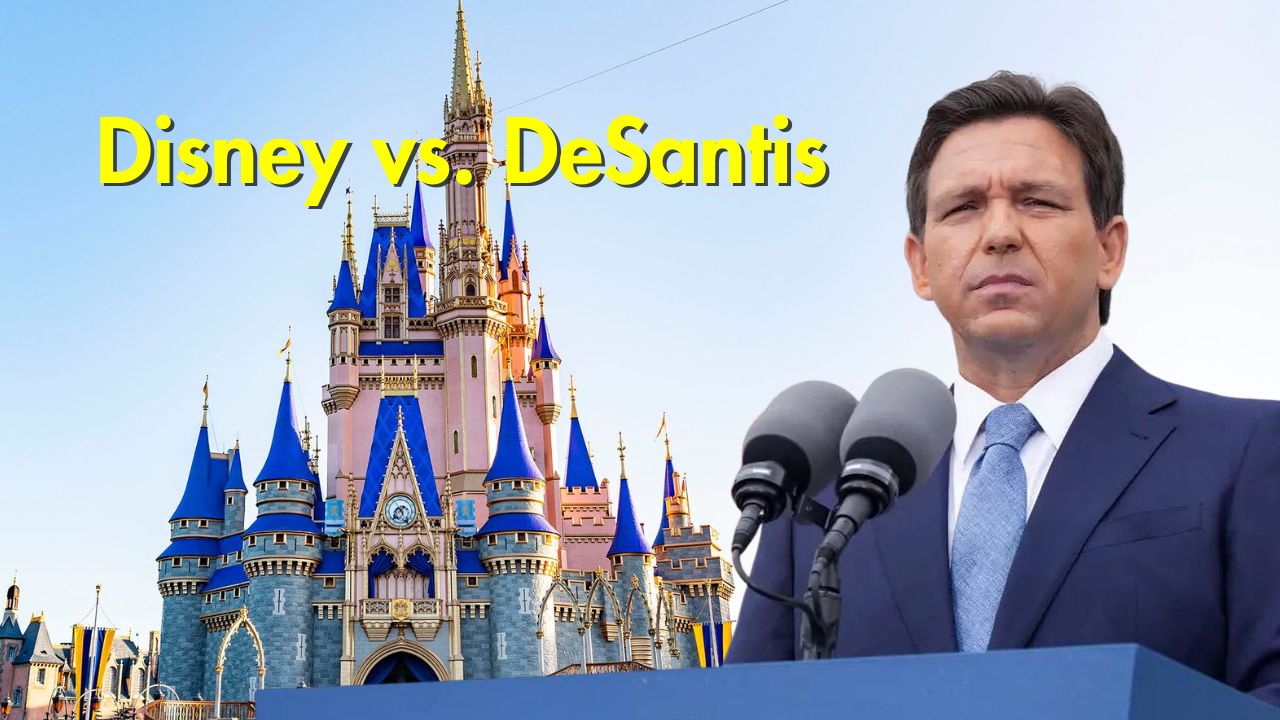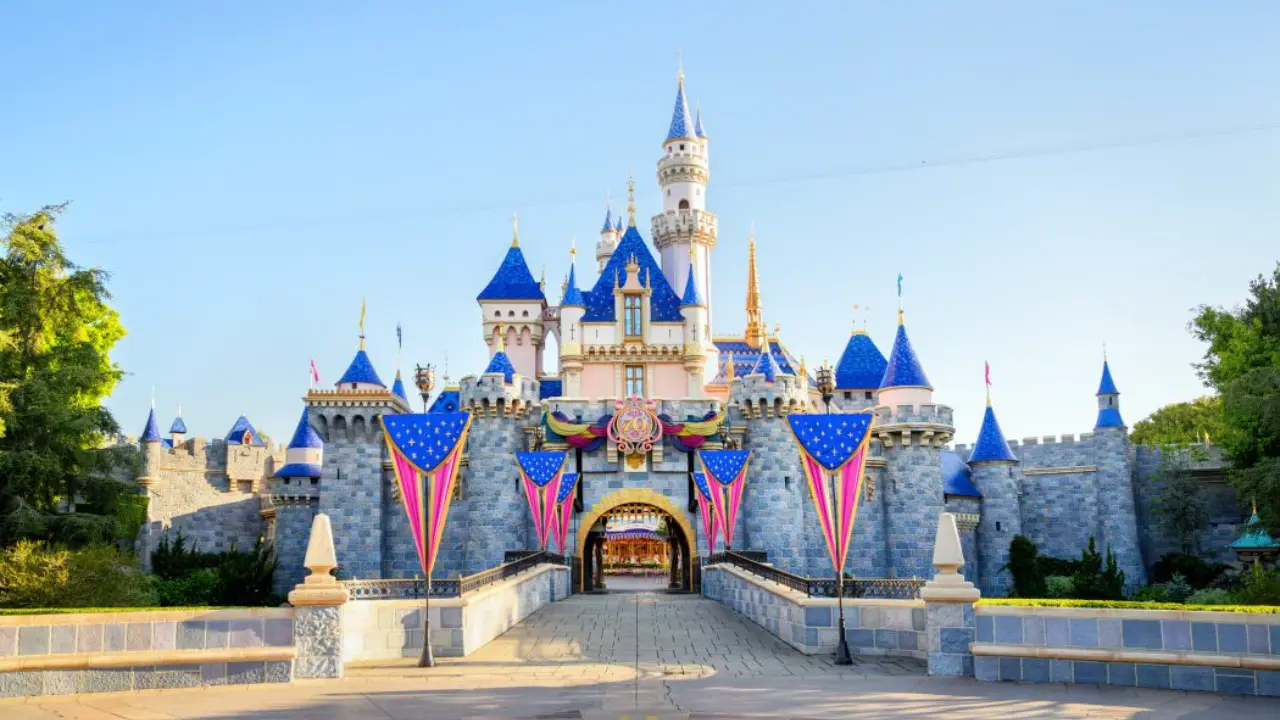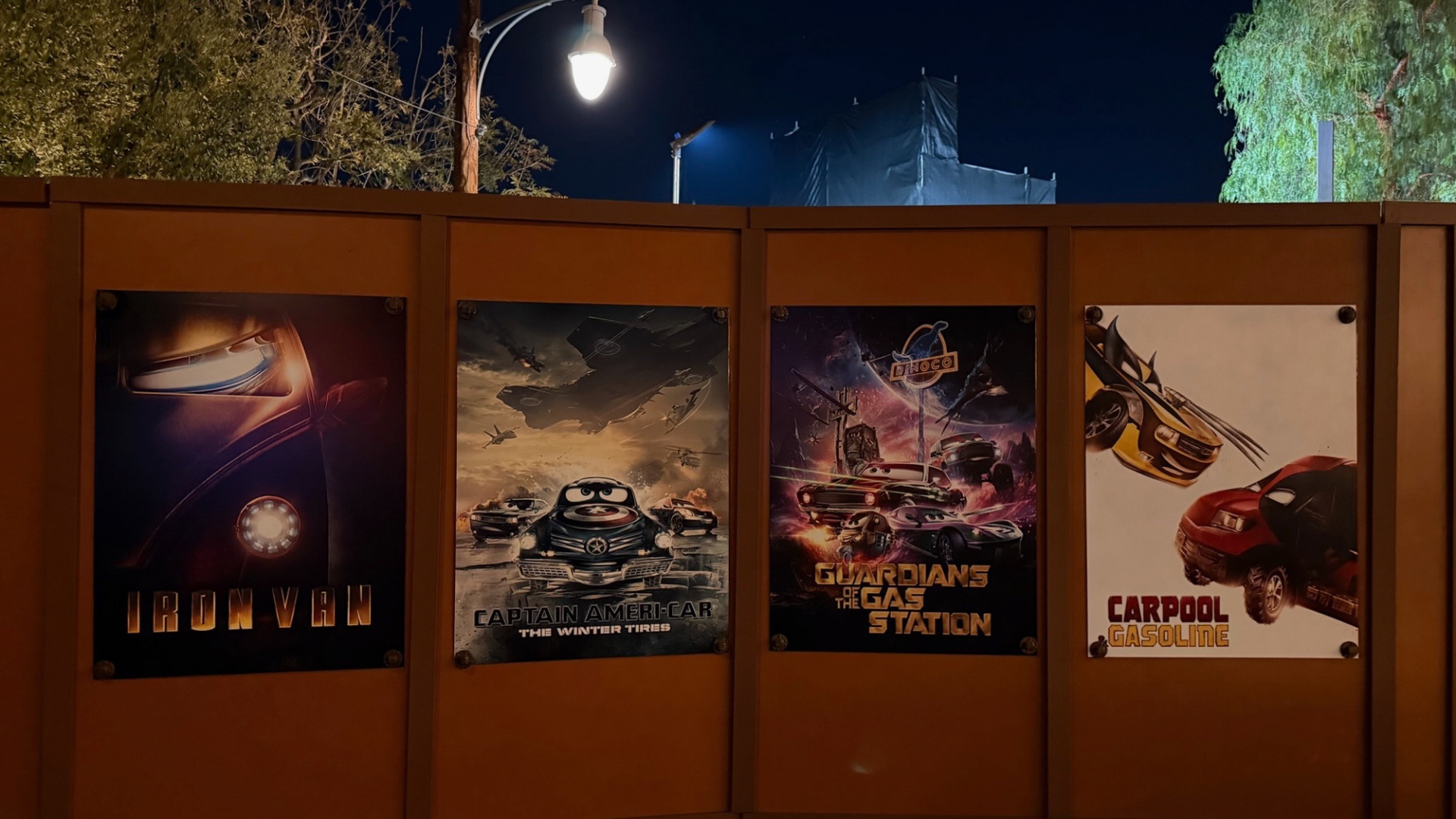In the most recent update to an ongoing feud between The Walt Disney Company and Florida Governor Ron DeSantis, the two parties have each shared when they would like a lawsuit to be tried. The lawsuit was brought about by Disney in federal court against Governor DeSantis and other Florida leaders after they moved to nullify a Development Agreement which was signed by Disney and the former Reedy Creek Improvement District (now the Central Florida Tourism Oversight District).
A new briefing regarding the scheduling of the case has been filed. In it, Disney is asking for the case to move forward at a normal pace. This would lead to a trial in the summer of 2024 most likely. Governor DeSantis, on the other hand, is requesting that the trial be postponed until August 2025, specifically August 5, 2025. This would be well after this next election for the President of the United States, which Governor DeSantis hopes to be representing the Republican Party in. At this point, the judge has not made a ruling on the matter.
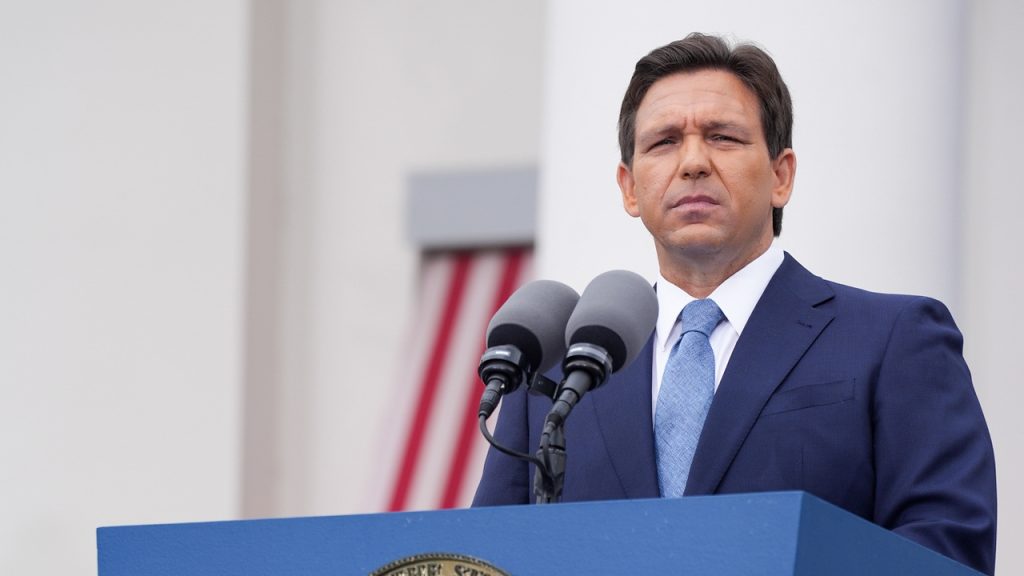
Disney vs. DeSantis in Federal Court
In the lawsuit Disney accuses DeSantis of waging a “relentless campaign to weaponize government power” against the company. It also alleges that DeSantis has a campaign to punish Disney over its political views, which DeSantis often refers to as “woke.’ Disney accuses DeSantis of illegally voiding a Development Agreement that transferred some powers from the district to Disney. Disney is asking for the Federal Court to declare that legislation dissolving the Development Agreement is both unlawful and also unenforceable. This includes the fact that it was “enacted in retaliation for Disney’s political speech in violation of the First Amendment. This campaign was “orchestrated at every step’” by DeSantis Disney says and it now threatens the company’s business.
The lawsuit was filed on the same day that board for the Central Florida Tourism Oversight District voted to nullify a Development Agreement that was made by Disney and the former Reedy Creek Improvement District. This agreement was made before Governor DeSantis dissolved that districted and replaced it with the Central Florida Tourism Oversight District. This board has hand picked board members that were selected by the governor.
The lawsuit against the governor says, “A targeted campaign of government retaliation—orchestrated at every step by Governor DeSantis as punishment for Disney’s protected speech—now threatens Disney’s business operations, jeopardizes its economic future in the region, and violates its constitutional rights.”
It continues to set the stage, “Today’s action is the latest strike: At the Governor’s bidding, the State’s oversight board has purported to ‘void’ publicly noticed and duly agreed development contracts, which had laid the foundation for billions of Disney’s investment dollars and thousands of jobs. This government action was patently retaliatory, patently anti-business, and patently unconstitutional. But the Governor and his allies have made clear they do not care and will not stop. The Governor recently declared that his team would not only ‘void the development agreement’—just as they did today—but also planned ‘to look at things like taxes on the hotels,’ ‘tolls on the roads,’ ‘developing some of the property that the district owns’ with ‘more amusement parks,’ and even putting a ‘state prison’ next to Walt Disney World. ‘Who knows? I just think the possibilities are endless,’ he said.”

The Feud Beyond the Lawsuit
The escalation of this battle between Disney and DeSantis began last year when then Disney-CEO Bob Chapek came out against Florida’s so-called “Don’t Say Gay” bill, which is now a law. This led to a disagreement between the company and state that eventually led to a focus on the Reedy Creek Improvement District, the entity where the Walt Disney World Resort resides. The Reedy Creek Improvement District was created over half a century ago to govern the district and help manage development.
As the disagreement has developed, DeSantis grew increasingly aggressive and began to take actions to punish Disney. This included suggesting that the board of the Central Florida Tourism Oversight District could have sway over Disney content, bringing up the possibility of raising taxes in the district, making toll roads in the district, regulating the district’s Monorails, and even throwing out the idea of adding a prison in the district. DeSantis has also suggested that Disney is playing by its own set of rules and does not pay enough taxes because it assesses its own properties. Addressing the Development Agreement, DeSantis has said that Disney and Reedy Creek made the agreement in secret. “They (Disney) are not superior to the laws that are enacted by the state of Florida.” DeSantis said. “They thought they could create a development agreement that would render everything we did null and void. That’s not going to work, that’s not going to fly.” This however, was not what happened.
Disney, however, is the largest tax payer in Central Florida and does not assess its own taxes. Disney utilizes the same system for tax assessment as other companies with similar situations in Florida. It appears that this system is equal and Disney is being singled out at this point. In 2022 Disney paid $1.146 billion in state and local taxes.
The development deal that has been central to recent controversies was made in an open manner and not behind closed doors. There was plenty of transparency that has been available for those who have been watching this story develop since the conflict first began. The Development Agreement could be seen in process on the Reedy Creek Improvement District website in its minutes. The process was also publicized in local papers and on the Reedy Creek Improvement District website.
The State of Florida itself approved the Comprehensive Plan upon which the Development Agreement which DeSantis is trying to render “null and void” is based on. This was done on July 17, 2022. It was finalized on February 8, 2023 with Reedy Creek Improvement District.
After the new Central Florida Tourism Oversight Board and Governor DeSantis discovered this Development Agreement and began to attack it, Disney released the following statement on March 28, 2023: “All agreements signed between Disney and the District were appropriate, and were discussed and approved in open, noticed public forums in compliance with Florida’s Government in the Sunshine law.”
Along with the board for the Central Florida Tourism Oversight District nullifying the Development Agreement, Florida passed a bill into law which the Governor signed to provide more oversight over Walt Disney World Resort’s monorail system.
On the other side, Disney pulled the plug on a project which would have created 2,000 jobs in Florida and moved a significant portion of Disney Parks, Experiences and Products staff to Lake Nona, Florida. At the time, Josh D’Amaro, the Chairman of Disney Parks, Experiences and Products said “Given the considerable changes that have occurred since the announcement of this project, including new leadership and changing business conditions, we have decided not to move forward with construction of the campus.” D’Amaro went on to acknowledge “This was not an easy decision to make, but I believe it is the right one.”
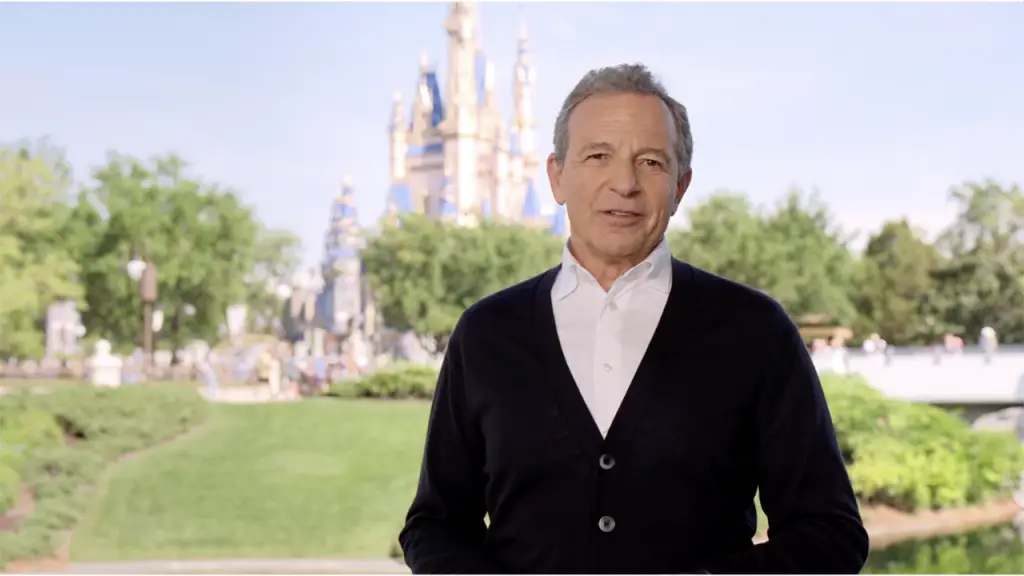
Bob Iger Weighs In
Disney CEO Bob Iger has generally stayed fairly quiet on the controversy. However, he has not stayed completely silent. Twice during shareholder calls Iger has addressed the feud with Governor DeSantis. The first time that Iger addressed the issue was during Disney’s annual shareholder meeting in April. During a Q&A portion of the meeting, Iger was questioned twice about the dispute.
“Let me if you don’t mind let me address this issue which I haven’t really done much publicly. But I’d love the opportunity just to put it all in perspective. First of all, I know you said you’re a resident, I think of Melbourne, Florida. We love the state of Florida. And I think that’s reflected in not only how much we’ve invested over the last 50 years, but how much we’ve given back in the form of jobs and community service taxes which you brought up, tourism, of course, and all sorts of other responsible business practices. We’ve also always respected and appreciated what the state has done for us. It’s kind of been a two-way street,” Iger said during the shareholder meeting..
Iger continued on with an assessment that the first response to the “Don’t Say Gay” bill by his predecessor former Disney CEO Bob Chapek was not handled well. In fact, he said it was “botched.”
“But a year ago, the company took a position on pending Florida legislation. And while the company may have not handled the position that it took very well, a company has a right to freedom of speech just like individuals do,” Iger said. “And obviously in taking the position, the governor got very angry about the position Disney took and seems like he’s decided to retaliate against us, including the naming of a new board to oversee the property and the business, in effect to seek to punish a company for its exercise of a constitutional right and that just seems really wrong to me, against any company or individual but particularly against the company that means so much to the state that you live in. That you can put that in perspective we have over 75,000 employees which I noted in my opening countless thousands of indirect jobs have been created.”
Iger was not done. He continued to build the case for Disney in Florida saying, “About 50 million visitors will go through our gates this year alone, about 8 million of them from outside the US and we are the largest taxpayer in the state. And you may find this interesting as it relates to future taxes but we’re currently planning now to invest over $17 billion in Walt Disney World over the next 10 years. And those investments we estimate will create 13,000 new Disney jobs and thousands of other indirect jobs and they’ll also attract more people to the state and generate more taxes. And so our point on this isn’t any action is that towards those efforts, simply to retaliate for a position the company took sounds not just anti-business but it sounds anti-Florida, and I’ll just leave it at that.”
This wasn’t the only question that connected with Disney and political fights during this shareholder meeting. Another question was about Disney standing up for different things politically. The caller wondered if by Disney taking a stand on positions if it was alienating current or future customers. This comes after Disney has made stances in situations like that in Florida and also other stances through the years that are what Disney leadership feels is in the best interests of its business and its employees.
“As the CEO of the company, I think my job is to strive to do what I think is best for our business. And that includes doing best what’s best for our cast members or our employees and what will enable both to flourish? I don’t think we should or can weigh in on every issue. And I also understand there are going to be gray areas, there are going to times and we decided to weigh in on an issue that we believe is worthy of debate because of its relevance and importance to our business or to our employees,” Iger explained.
Iger continued saying, “And there are times when I’ve actually believed we shouldn’t, but I strongly feel that we alone have to determine whether when or how to weigh in on a on an issue, whether it’s private or public. Of course with the standard that when we take a position on those matters, there’s a true reason why we have. In almost all cases it has to be because it directly affects our business or our people. And I think if you look back, you know, for decades, corporate America has expressed themselves on numerous issues of both right and wrong and our country, I think, is better off for that. And it was evident during the Civil Rights era, as I recall as a child, when a lot of companies weighed in on injustice is that they saw in America. It was certainly true during World War II when those that stood in silence, in some ways, still carry the state of indifference. As long as I’m in the job, I’m going to continue to be guided by a sense of decency and respect and trust our instincts that when we do weigh in, we weigh in because the issue is truly relevant to our business and to the people that work for us.”
One month later on an earnings call Iger was again asked about the feud between Disney and Governor DeSantis. In short, Iger said it is all about retaliation.
“Regarding Florida, I have a few things I want to say about that bill,” Iger said. “First of all, the case that we filed last month made our position and the facts very clear. This is about one thing and one thing only, and that’s retaliating against us for taking a position about pending legislation. And we believe that in us taking that position, we are merely exercising our right to free speech. Also, this is not about special privileges, or a level playing field, or Disney in any way using its leverage around the state of Florida.”
Iger continued saying, “But since there’s been a lot said about special districts and the arrangement that we had, I want to set the record straight on that, too. There are about 2,000 special districts in Florida, and most were established to foster investment in development. We were one of them. It basically made it easier for us, and others by the way, to do business in Florida. And we built a business that employs, as we’ve said before, over 75,000 people and attracts tens of millions of people to the state. So while it’s easy to say that the Reedy Creek special district, which was established for us over 50 years ago, benefited us, it’s misleading to not also consider how much Disney benefited the state of Florida. And we’re not the only company operating a special district. I mentioned the Daytona Speedway has one, a prominent retirement community, and there are countless others. So if the goal here is leveling the playing field and the uniform application of the law, government oversight of special districts needs to occur or be applied to all special districts.”
He wrapped up his thoughts by addressing the false tax break narrative saying, “There’s also a false narrative that we’ve been fighting to protect tax breaks. But in fact, we’re the largest taxpayer in Central Florida, paying over $1 billion in state and local taxes last year alone. We pay more taxes, specifically more real estate taxes, as a result of that special district, and we all know there was no concerted effort to do anything to dismantle what was once called Reedy Creek special district until we spoke out on the legislation. So this is plainly a matter of retaliation, while the rest of the Florida special districts continue operating basically as they were. I think it’s also important for us to say our primary goal has always been to be able to continue to do exactly what we’ve been doing there, which is investing in Florida. We’re proud of the tourism industry that we created and we want to continue delivering the best possible experience for guests going forward. We never wanted, and we certainly never expected, to be in the position of having to defend our business interests in federal court, particularly having such a terrific relationship with the state as we’ve had for more than 50 years. And as I mentioned on our shareholder call, we have a huge opportunity to continue to invest in Florida. I noted that our plans are to invest $17 billion over the next 10 years, which is what the state should want us to do. We operate responsibly. We pay our fair share of taxes. We employ thousands of people and, by the way, we pay them substantially above the minimum wage dictated by the state of Florida. We also provide them with great benefits and free education. So I’m going to finish what is obviously kind of a long answer by asking one question: Does the state want us to invest more, employ more people and pay more taxes, or not?”

Other Related Lawsuits
This federal lawsuit isn’t the only one that Disney has been connected with in regards to the controversy with Governor DeSantis. The Central Florida Tourism Oversight District filed a counter lawsuit in Florida state court. It argues that the Development Agreement that was made between Disney and the former Reedy Creek Improvement District is invalid because proper notice was not given.
“These agreements reek of a backroom deal — drafted by Disney with the acquiescence a lawyer who represented both Disney and the District, set for hearing without proper notice, and hustled through a compliant Disney-controlled Board that Disney knew would not dwell long on the issue,” the lawsuit reads. “But perhaps out of haste or arrogance, Disney’s deals violate basic principles of Florida constitutional, statutory, and common law.”
At this point, Disney has asked for the lawsuit to be dismissed due to legislation at the state level allowing the Central Florida Tourism Oversight District the power to nullify the Development Agreement makes the controversy moot.
Another lawsuit was brought against Disney in Delaware by a shareholder that was backed by a conservative firm. It accuses Disney and its board of directors of wrongdoing with how it reacted to the “Don’t Say Gay” bill. The judge in the case disagreed and dismissed the case.
Next Steps
At this point, the next step will be waiting for the judge in the federal lawsuit to rule on the timeline for this case. The judge also will rule on a request by Governor DeSantis and his team for the lawsuit to be dismissed outright. In it, DeSantis argues that he has “absolute legislative immunity,” on the issue. DeSantis also argues that the accusation of retaliation is “meritless for many reasons.” The judge will decide on all of these issues as this dispute continues to move forward.

